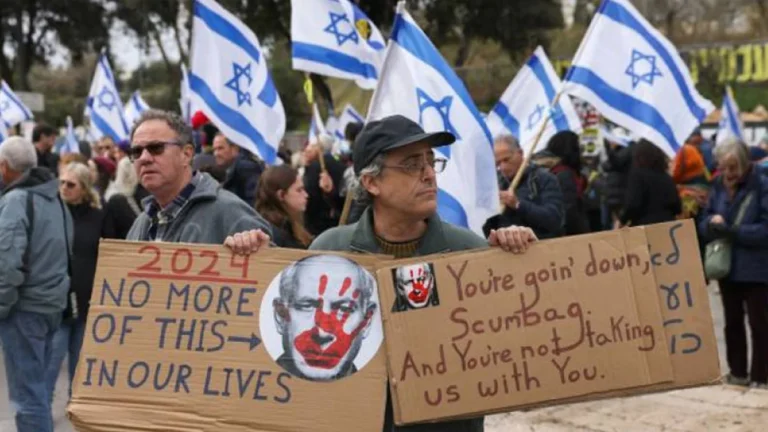In a Tel Aviv cafe, an Israeli anti-war campaigner discreetly converses with an 18-year-old woman determined to defy military conscription, a decision that could lead to imprisonment, especially amid Israel’s intense conflict in Gaza.
Nave Shabtay Levin, a 20-year-old activist who served 115 days in jail for draft refusal until last March, commends the woman, Sofia Orr, for her courage. “It’s even braver during wartime,” he said in the outdoor setting of the cafe.
Tal Mitnick, an Israeli teenager, was recently jailed as a “conscientious objector” for refusing military service, marking the first such imprisonment since the onset of Israel’s conflict in Gaza, as reported by Mesarvot, a volunteer group.
Mesarvot members, part of the “we refuse” movement in Hebrew, have publicly vowed to emulate Mitnick’s actions, expressing dissent against the war and the occupation of Palestinian territories.
In Israel, where nationalism often peaks during wartime and military service is deeply embedded in national identity, refusing to enlist is a solitary political stance. Those who resist conscription, known as refuseniks, face being labeled traitors and receiving death threats, particularly under Prime Minister Benjamin Netanyahu’s administration.
Levin, speaking in hushed tones and constantly looking around, acknowledges the risks of openly opposing the war.
Both men and women in Israel are obligated to join the army at 18. Orr, undaunted and openly declaring her intention to refuse enlistment in February, told AFP, “My conscience won’t allow it. Fighting fire with fire is not the solution to eradicating Hamas’ ideology.”
Orr braces for a similar fate as Mitnick, who received a longer-than-usual initial 30-day jail term for his refusal to partake in what he termed a “war of revenge.”
Typically, Israeli conscientious objectors are imprisoned for up to 10 days at first, with potential for extended jail terms upon continued refusal, Mesarvot members explained to AFP. While exemptions from conscription exist for religious, medical, or ethical reasons, political grounds are not accepted.
The exact number of refuseniks is uncertain, many choosing not to go public. The army has not provided statistics on this matter.
Iddo Elam, 17, another Mesarvot volunteer planning refusal, told Sky News, “One massacre doesn’t justify another.” He refers to the heavy casualties in Gaza compared to the Israeli death toll.
Refuseniks, part of the Jewish peace advocacy, have been organizing protests demanding a ceasefire in Gaza, often facing confrontations with ultranationalists and police.
Despite being a minority in an increasingly right-leaning Israel, these peace advocates persist, but their impact on the large Israeli military remains minimal. Columnist Gideon Levy in Haaretz critiques the Israeli forces’ participation in the conflict as “moral blindness.”
For Orr, her resistance is a battle to maintain her humanity. The initial attack on October 7 left her angry and concerned about the repercussions on Gaza. “Extreme violence


